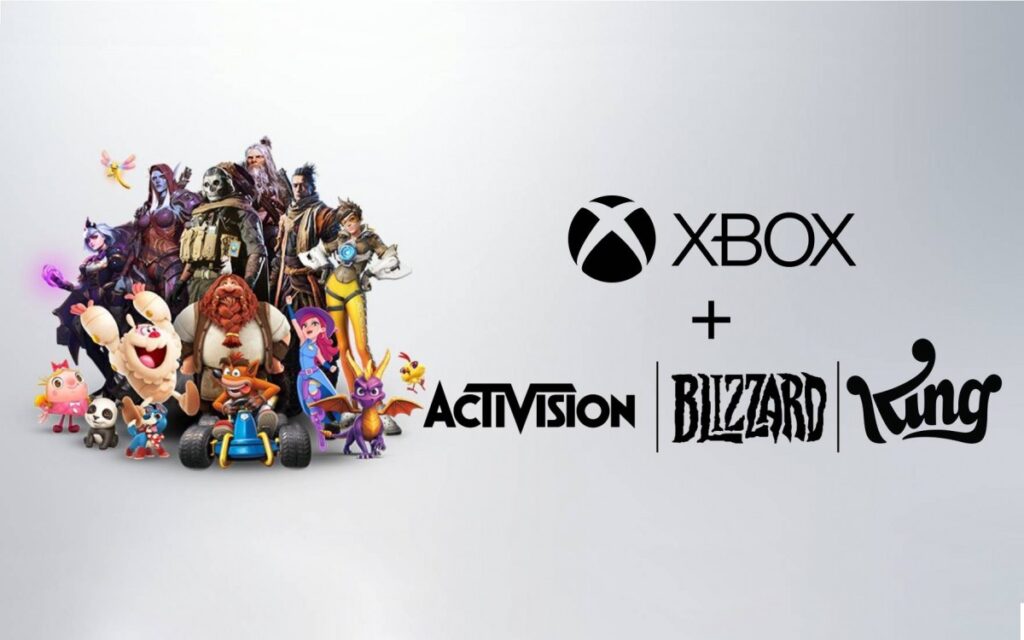Microsoft has announced that it will be bringing its popular Xbox games to Nvidia’s cloud-gaming service in a move that aims to ease regulators’ concerns over its planned $69 billion acquisition of Activision Blizzard. The move comes after Microsoft’s planned takeover of Activision Blizzard was met with pushback from regulatory authorities in the US, UK, and EU, who expressed concern that the deal could lead to reduced competition in the gaming market. With this announcement, Microsoft hopes to address those concerns and expand its gaming unit, which currently represents 9% of its total revenue.
Microsoft Bringing Xbox Games to Nvidia’s Cloud Gaming Service
Microsoft has announced that its Xbox games will be available on Nvidia’s GeForce Now cloud gaming service. This announcement comes after Nvidia reportedly expressed opposition to a major Microsoft gaming deal. Microsoft President Brad Smith said that the company is offering an olive branch to prevent the takeover from being blocked and, thereby, expand its gaming unit.
The Activision Blizzard acquisition, worth $69 billion, represents 9% of Microsoft’s total revenue. Smith said that effective immediately, Xbox games will be available on Nvidia’s GeForce Now cloud games service. If the Activision deal goes through, all Activision Blizzard titles will be brought to GeForce Now. Nvidia is now on board with Microsoft’s pending deal for regulatory purposes.

Microsoft’s Plan to Acquire Activision Blizzard
Microsoft proposed the Activision Blizzard acquisition in January 2022, but the buyer has faced pushback from regulators in the United States, European Union, and U.K. The EU’s executive arm, the European Commission, opened an in-depth investigation into the deal in November, citing concerns that it could reduce competition in the video games market. Activision Blizzard is the company behind the popular game franchise Call of Duty, and the EU commission said last year that it is concerned that Microsoft could block access to the game on other platforms if the deal goes through.
Regulatory Concerns
The commission is also concerned that the acquisition could give Microsoft an unfair edge in the nascent area of cloud gaming. Microsoft has a service called Game Pass through which it charges gamers $9.99 per month to access a library of games. The Activision takeover would add some high-profile titles to Game Pass.
In December, the U.K.’s Competition and Markets Authority (CMA) said that the takeover raises competition concerns and may result in higher prices, fewer choices, and less innovation. The regulator said that it could move to block the deal. In December, the U.S. Federal Trade Commission (FTC) filed an antitrust case against Microsoft attempting to block the Activision deal.
Microsoft’s Response
Microsoft has maintained that its takeover of Activision Blizzard would not harm competition in video gaming and instead increase competition against large players like Sony and Chinese giant Tencent. Microsoft has remained behind the likes of Sony and Nintendo in the video gaming business.
Microsoft’s Xbox consoles have lagged behind Sony’s PlayStation 5 and Nintendo’s Switch. Sony and Nintendo’s popularity have come from their large number of successful first-party games. Microsoft is looking to boost its games library with the Activision acquisition.
Smith on Tuesday led a delegation that included Microsoft Gaming CEO Phil Spencer and Activision Blizzard CEO Bobby Kotick, according to Reuters. Sony’s gaming chief Jim Ryan was also in attendance, Reuters added. Sony, Microsoft’s biggest rival, opposes the Activision takeover.
Microsoft’s Olive Branch to Nvidia
Microsoft’s move to bring Xbox games to Nvidia’s GeForce Now cloud gaming service is a significant development in the company’s efforts to expand its gaming unit. The move comes after Nvidia reportedly expressed opposition to the Activision Blizzard acquisition. However, by bringing its games to Nvidia’s cloud gaming service, Microsoft is offering an olive branch to Nvidia and regulatory authorities to prevent the deal from being blocked.
Combining Xbox first-party games with GeForce Now’s high-performance streaming capabilities will propel cloud gaming into a mainstream offering that appeals to gamers at all levels of interest and experience.
Jeff Fisher, Nvidia’s Senior Vice President for GeForce, said that “through this partnership, more of the world’s most popular titles will now be available from the cloud with just a click, playable by millions more gamers.”
Nvidia’s GeForce Now has over 25 million members, while Microsoft said last year that 25 million people subscribe to Game Pass. Nvidia offers free and paid GeForce Now tiers, although.
Conclusion
In conclusion, Microsoft’s decision to bring its Xbox games to Nvidia’s cloud-gaming service is a significant step towards addressing the concerns of regulators over its planned acquisition of Activision Blizzard. By doing so, Microsoft hopes to show that the deal will be good for competition and will not harm other players in the market.
The move will also expand Microsoft’s gaming unit, giving it a better foothold in the highly competitive gaming industry. It remains to be seen how regulators will react to this latest development, but it’s clear that Microsoft is taking proactive steps to ensure the success of its planned acquisition.
FAQ
Why was Microsoft’s planned acquisition of Activision Blizzard met with pushback from regulators?
Regulators expressed concern that the deal could lead to reduced competition in the gaming market and give Microsoft an unfair advantage in the nascent area of cloud gaming.
How does Microsoft hope to address the concerns of regulators over the Activision Blizzard deal?
By bringing its Xbox games to Nvidia’s cloud-gaming service, Microsoft hopes to show that the deal will be good for competition and will not harm other players in the market.
What impact will Microsoft’s decision to bring its Xbox games to Nvidia’s cloud-gaming service have on the gaming industry?
The move will expand Microsoft’s gaming unit, giving it a better foothold in the highly competitive gaming industry. It could also pave the way for further collaboration between major players in the gaming market, leading to new opportunities for innovation and growth.









